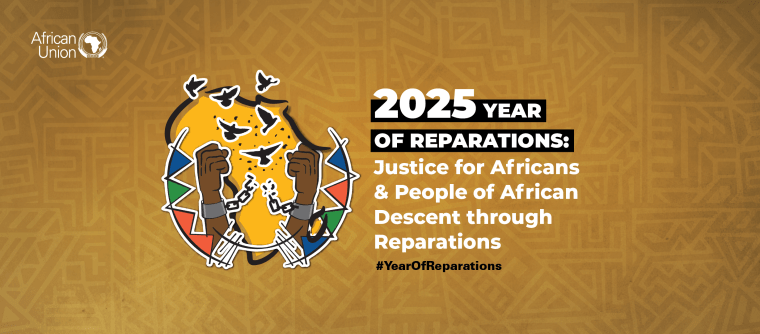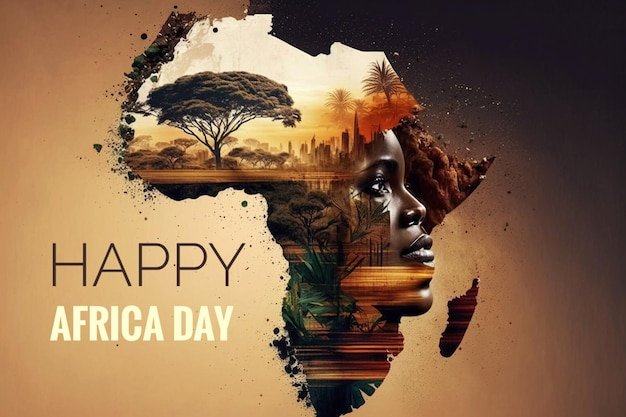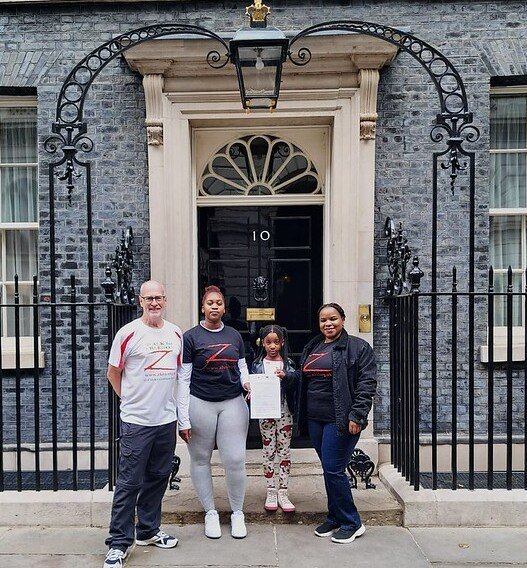ZIMBABWE: HUMAN RIGHTS UNDER ATTACK: A review of Zimbabwe's Human Rights Record 2018 to 2023 - Amnesty International - Zimbabwe
- Details
- Written by: Patsen Nkomo
- Hits: 748
 Zimbabwe: From Promise to Peril
Zimbabwe: From Promise to Peril
The Human Rights Crisis Under Mnangagwa
When President Emmerson Mnangagwa and Vice President Constantino Chiwenga toppled Robert Mugabe in November 2017, they promised Zimbabweans a new dawn. They claimed they wanted to rid the country of the corrupt thugs who had surrounded the aging dictator and restore Zimbabwe to prosperity. Seven years later, that promise has proven hollow. Nothing has fundamentally changed – Mnangagwa has simply replaced Mugabe's corrupt network with his own.
The Continuation of Corruption
The international community has taken notice of Zimbabwe's continued descent into corruption under Mnangagwa's leadership. In March 2024, the United States imposed targeted sanctions on President Mnangagwa himself, along with his wife and other senior officials, citing their involvement in corruption and serious human rights abuses. The U.S. Treasury Department specifically accused Mnangagwa of protecting gold and diamond smuggling networks, directing government officials to facilitate illicit sales, and taking bribes in exchange for his services.
The names of Wicknell Chivayo and Kudakwashe Tagwirei have become synonymous with the kind of crony capitalism that has flourished under Mnangagwa's rule. These individuals, with their ostentatious displays of wealth, represent a system where political connections matter more than merit or legality. According to investigative reports, Tagwirei received treasury bills at favourable exchange rates while running the Command Agriculture program, epitomizing the kind of corruption that has become endemic under the current administration.
Infrastructure in Ruins
The evidence of this corruption is visible everywhere in Zimbabwe's crumbling infrastructure. The state of the country's roads tells a story of neglect and misplaced priorities. While billions of dollars disappear through corrupt deals, ordinary Zimbabweans struggle with impassable roads that hamper economic activity and isolate communities. The deterioration of basic infrastructure reflects a government more concerned with enriching its allies than serving its people.
- Details
- Written by: Josephine Jenje-Mudimbu
- Hits: 856
 AFRICA DAY
AFRICA DAY
Today, 25th May 2025, marks sixty two (62) years of the commemoration of the founding of the Organization of African Union now known as African Union. The day is an annual event, recognized and celebrated in Africa and other parts of the world. It automatically became Africa Day.
The purpose of Africa day celebrations is to unite for a peaceful, cooperative and developed continent making the checks and balances on the progress made and challenges faced, reflecting upon the them.
This year, 2025 the theme is, "Justice for Africans and people of African descent through Reparations."
As Africans, is our conscience clear with the goals we set for ourselves, do we practice what we always preach and do we abide by the rules or we forget easily?
Do we have leaders who are honest, kind and truthful to their citizen or we still have a long way to go for 'democratic constitutional leadership'. Leadership crisis is a good example of poor undemocratic governance, especially that is currently being experienced in Zimbabwe of not abiding to the principles of the Liberation Struggle. Lack of freedom of assembly, association, speech is a sign to a true undemocratic society.
Is Zimbabwe Free?
When Zimbabwe joined the Liberation struggle the main objective was to gain freedom from the colonial regime which was too oppressive to the black majority. There were higher expectations of freedom in the post war. The gains of the struggle were reversed and fear was instilled amongst the populace creating division tactics for political mileage.
- Details
- Written by: Nobukhosi Dube
- Hits: 707
 Africa Day Reflection.
Africa Day Reflection.
Why Zimbabwe Is Lagging Behind!!
Today as we celebrate Africa Day - we honour the strength,unity and resilience of a continent rich in minerals, culture, heritage and potential.
It is a moment of pride for many African nations, that have made progress in democracy, economic growth and human rights.But for Zimbabweans - Africa Day is a painful reminder of how far behind we have fallen, compared to our neighbours. While countries like Botswana, Ghana and Namibia have made admirable strides in governance, development and press freedom. Zimbabwe continues to be held hostage by corruption, repression and poor leadership.
The current regime has not only failed to uphold democratic principles, but have also silenced opposition voices, manipulated elections and brutally cracked down on civil society.
In 2024 alone we have witnessed journalists being arrested activists being harassed and also getting killed and the continued erosion of the constitution. The push to extend the presidential term to 2030, has sparked the national outrage in Zimbabwe. Yet the government continues to ignore the people's voices.
Zimbabwe was once known as the bread basket of Africa and one of the promising nations. It is a nation rich in natural resources, and known for its strong educational system. Today it is a nation where millions have fled in search of safety and for opportunities in greener pastures. We have become a laughing matter to our African brothers.
Unemployment remains high. Inflation continues to skyrocket and the healthcare system has crumbled. Africa Day should be a celebration for all Africans, but in Zimbabwe it's a day that fills our hearts with so much heavyness, because it's a reminder of what have been lost. And how much more should we continue to fight to regain our freedom, dignity and a rightful place amongst the thriving African nations. Let Africa Day reignite our commitment to justice reform and change that we so desire as a nation.
As the Zimbabwean nation, let us not stop to raise our voices high until we achieve it. ZIMBABWE DESERVES BETTER!!
HAPPY AFRICA DAY✊
- Details
- Written by: ZHRO and the Petitioners
- Hits: 1116
 In Recognition of AFRICA DAY - Sunday 25th MAY 2025: Updated
In Recognition of AFRICA DAY - Sunday 25th MAY 2025: Updated
Today (Saturday 24th May 2025) we presented our Petition to the UK PM at Number 10 Downing Street at 14:00. This had been arranged (3 weeks ago) with the DSLO (Downing Street Liaison Office Police Unit). In addition, a copy will be e-mailed to the Zimbabwe Desk within the FCDO located in King Charles Street (Accessable via the arch opposite the front door to 10 Downing Street!)
6 Activists were cleared to enter the gates of Downing Street to handover at that 'famous' front door - with a letter box inscribed with the words "First Lord of the Treasury"Note However, due to train delays and other emergecies only 3.5 (three and one half!) entered the famous courtyard at Number 10!!
This article became 'LIVE' at 14:30 as planned, after we physically delivered the written petition, and the wriiten document can be read or downloaded at this LINK - Click Here to Read/Download
We have done this many times before as can be seen on this link to our summary of the last 33 months of activism and demonstrations 16 Events Not Out - as a nod to Zimbabwe's cricket team at Trent Bridge (May 22nd to Africa Day - 25th May 2025)
Diana Machingauta, Vengai Mutsawu, Tatenda Changambika, Tawanda Matangambiri, Mollin Muteto and Happiness Ncube, will be delivering the Petition to the Offices within 10 Downing Street. Tawanda will be filming the video log of the hand over and comments from all the petitioners about Africa Day, and how Zimbabwe is NOT an ideal representative of the real potential within the Continent!
However things did not go to plan - Tawanda, and Mollin got caught up in the train chaos today so could not arrive in time for the ID Checks at the Gates to Downing Street - they were only 10 minutes late - but the police are VERY strict! Very Strict indeed. Tatenda and Vengai both had family emergencies to contend with. So it was left to myself to take up one place plus Happiness's young daughter to fill in! - See the photo log.
- Details
- Written by: AI, @Chivhu4lyfe and John Burke
- Hits: 885

The X post by Anesu (@Chivhu4lyfe) CLICK HERE for Original
On March 31, 2025, @Chivhu4lyfe accuses 34 individuals of being part of "ED's Grand Looting Mafia" and "Political Criminals," collectively referred to as "Zvigananda" (Shona for "thieves"). These individuals are blamed for Zimbabwe's economic collapse, healthcare crisis, and overall governance/administration failures.
The post ties into the broader context of the March 31, 2025, protests in Harare, where citizens expressed frustration over corruption, economic hardship, and President Emmerson Mnangagwa's potential term extension to 2030, which many view as a violation of the constitution. Below is an analysis of the named individuals, their roles, and their ties to Mnangagwa, based on the provided data and broader context.
Context of the Post and Protests
The post reflects deep public discontent in Zimbabwe, a country grappling with economic decline, hyperinflation, and a failing healthcare system. The term "Zvigananda" underscores the perception of systemic corruption, where a small elite is accused of plundering national resources while the majority suffer. The protests on March 31, 2025, were part of a national shutdown, with demonstrators opposing Mnangagwa’s rumored plan to extend his presidency beyond his constitutional two-term limit (ending in 2028). This unrest is further fueled by internal ZANU-PF factionalism, particularly between Mnangagwa’s camp and supporters of Vice President Constantino Chiwenga, as highlighted by war veteran Blessed Geza’s resistance movement (M31).
Mnangagwa, who came to power in a 2017 coup against Robert Mugabe, has been accused of consolidating power through patronage networks, rewarding loyalists with key positions and economic opportunities while sidelining rivals. The individuals listed in the post are seen as part of this network, benefiting from their proximity to Mnangagwa while allegedly engaging in corrupt practices.
- London vs Harare 31st March 2025
- A Plea for Reason & Restraint
- Zanu PF are Rapists
- 16 Events Not Out
- Blockchain Voting App
- 20th Feb 2025 We Dont Want No ED 2030
- Electoral Reforms a Vital Condition
- 2017 Replay - Tensions in Harare
- From Colonisation to Dictatorship
- Justice for a Genocide
- SADC under Mnangagwa Chairmanship
- Liberation was Hijacked
- Ghost of Zimbabwean Gold
- Member Perspectives 13th Dec 2023
- Amnesty International Zimbabwe Review 2018-2023
- Police and ZEC Bias in Zimbabwe - ZHRC
Subcategories
Sanitation Article Count: 3
"The current water and sanitation situation in Zimbabwe faces many challenges around capacity, behaviours and the lack of investment in these sectors during and after the economic crisis of the last decade. Access to clean water is a basic right that is important for the survival of humanity yet it can be one of the hardest resources to attain." UNICEF.ORG
